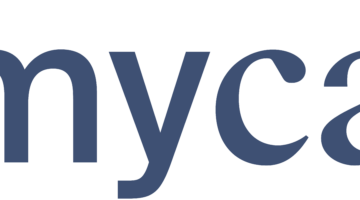 A little girl waits in the school lunch line with her friends. They are looking forward to their chicken and fresh fruit. As she nears the front of the line, her friends can see concern on her face. She takes her tray and the woman behind the counter hands her a plate of hot food. However, the cashier asks her name and then grabs the tray, throwing the food into a nearby trash can. The cafeteria employee announces, for all to hear, that the little girl’s parents have not paid their $22 lunch bill. The little girl quietly weeps, hungry, confused, and deeply shamed. Her friends cry too. As should we all.
A little girl waits in the school lunch line with her friends. They are looking forward to their chicken and fresh fruit. As she nears the front of the line, her friends can see concern on her face. She takes her tray and the woman behind the counter hands her a plate of hot food. However, the cashier asks her name and then grabs the tray, throwing the food into a nearby trash can. The cafeteria employee announces, for all to hear, that the little girl’s parents have not paid their $22 lunch bill. The little girl quietly weeps, hungry, confused, and deeply shamed. Her friends cry too. As should we all.
This kind of brutal “lunch-shaming” is happening around the country. Parents too often find that their poverty makes it difficult to afford lunch for their children. And while children from the most low-income families can sometimes enroll in free or discounted school lunch programs for their primary meal of the day, many families do not have the wherewithal successfully to apply. Other families fall just beyond the eligibility requirements. Still others do not know they can access these meal programs for their children and there is no one to educate and guide them. As a result, little girls and boys are publicly embarrassed by their poverty, shamed for being poor, and reduced to eating cheap, unhealthy meals, if at all.
The New York Times recently reported about a child forced by school policy to wear a stamp on his arm that read “I Need Lunch Money.” The Times also described how some children are forced to clean tables to pay-off their parents’ debt. Other schools actually have policies requiring workers to throw the food away if the family is carrying an existing lunch debt. So children go hungry while available food is discarded publicly, resulting in quite a demonstration of skewed social priorities.

How MyCase’s Smart Spend Can Help Increase Your Profits
This tweak to your financial management seems like a no-brainer.
Unhappily, more than 75% of all school districts across the country have lunch debt. A number of schools have launched private fund-raising campaigns in an effort to pay these lunch costs and keep their students fed. Abby J. Leibman, the CEO at MAZON, a national leader in addressing hunger issues, has reminded us all that those efforts, while admirable, should be measures of last resort. Instead “our first societal priority ought to be adjusting the qualifications for acceptance into federal lunch programs. The eligibility bar is clearly set too high for many needy families to meet, a standard that does not reflect the realities of the ravages of poverty.” Additionally, a dependence on private fund-raising inevitably will create a two-tiered system of access to nutrition. Those children living in economically challenged regions where the local community is not sufficiently affluent to provide the funding needed to feed hungry students will have a very different outcome than those children lucky enough to be living in areas where fund-raising is possible. We owe more to our children than to base the basic necessities of their lives on the vagaries of available private largesse. Policies and priorities must be the first line of protection for our children.
Minnesota, in concert with MAZON and Mid-Minnesota Legal Aid, was the first state to try to legislatively address this situation. New Mexico also recently passed an anti-shaming law. These measures direct schools to work with low-income parents to pay their debt or provide assistance in applying for federal meal assistance programs. The law aspires to end public shaming of the children. Texas and California have legislation pending.
In this most divisive political environment, a bi-partisan group in Congress (yes, cooperation across the aisle can still happen) last week introduced the Anti-Lunch Shaming Act. The legislation, if enacted, “shall not permit” schools to single-out children whose parents’ have lunch-related debt. It would be illegal to brand a child with the Scarlet Letter of a wristband, a hand stamp, or a requirement that she clean tables or pick-up trash. Forcing a child effectively to pay a parental debt, and go hungry or unhealthy in the process, is what the legislation seeks to end. The Anti-Lunch Shaming Act also would streamline the process of applying for free or low-cost lunch, require schools to provide program applications to all families in need, ensure that homeless and foster children have their nutritional needs addressed, and set up methods making it easier for parents to pay needed meal costs. These measures would draw a bright line between children and the poverty-driven debts of their parents. The Act would show compassion for those same children, ensuring there is no place nor reason for humiliation.
Neither is there rationale for not treating one hot, nutritious meal per day the same way we treat textbooks and buses. Like materials and transportation, lunch needs to be a mandatory part of our system of public education. As a community we have decided that if a child can’t get to school, educational opportunity is lost. We should also decide that if a child is hungry and can’t focus, that same opportunity is equally unattainable.

Best Practices In Trust Accounting: What Every Lawyer Needs To Know
Learn legal trust accounting best practices to ensure compliance and protect client funds. Discover expert tips to set your firm up for success.
This is where lawyers can play a key part. Attorneys familiar with the legislative process can work to make federal food program applications more streamlined, they can help families apply for lunch assistance, they can challenge improper or mistaken denials of benefits, they can work to make lunch program eligibility requirements more reasonable. Attorneys can help states draft and enact anti-shaming laws. They can represent clients and work to apply and enforce these important statutes. Under the federal Community Eligibility Provision schools in high-poverty neighborhoods are allowed to offer free meals to all students, without families having to file individual applications. However, only about half of eligible schools actually participate. Lawyers can help these schools navigate the necessary bureaucracies.
The legal profession can help ensure that innocent children are not denied this basic necessity of life. Volunteering and providing pro bono services to families and schools, alike, allows attorneys to assist in ways no one else can do. Call MAZON, call similar organizations in your communities, reach out to legal aid organizations, contact Appleseed centers in your region, call legislators, call schools, offer your legal skills. There is much that can be done.
Photo via Getty Images
 David A. Lash serves as Managing Counsel for Pro Bono and Public Interest Services at O’Melveny & Myers LLP. He can be reached at [email protected]. The opinions expressed are his alone.
David A. Lash serves as Managing Counsel for Pro Bono and Public Interest Services at O’Melveny & Myers LLP. He can be reached at [email protected]. The opinions expressed are his alone.